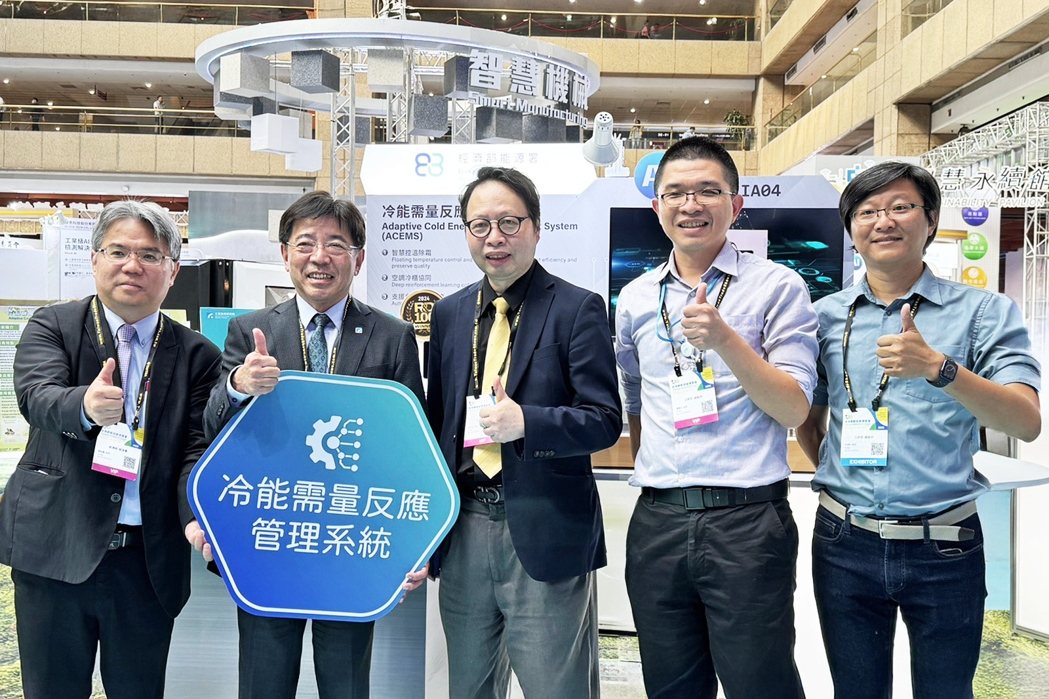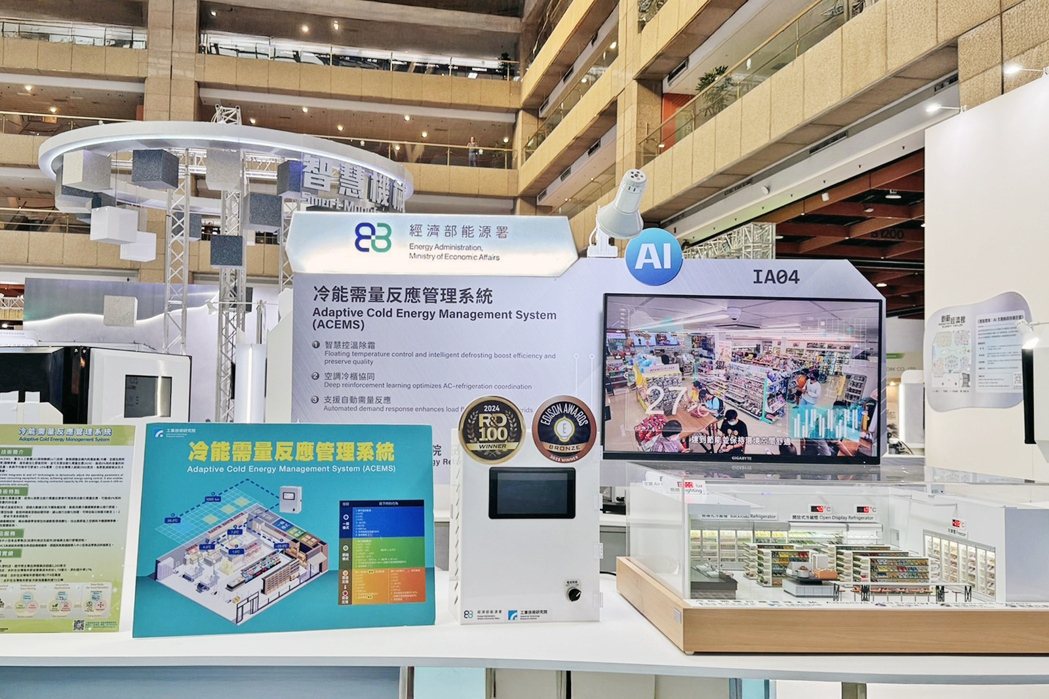AI Makes Energy Smarter! ITRI's TIE Showcases the Next Generation of Green Intelligence for Power Grids
2025/10/17 | By CENS
The 2025 Taiwan Innovation Expo (TIE) “Innovation Economy Pavilion” opened grandly on October 16. For the first time, the Industrial Development Bureau (IDB) of the Ministry of Economic Affairs (MOEA) joined forces with the Small and Medium Enterprise Administration, Department of Industrial Technology, Energy Administration, and Department of State-Owned Enterprises to co-organize the exhibition.
Under the theme “AI Ecosystem: Connecting All Industries,” the pavilion demonstrates how artificial intelligence injects new momentum into energy transition and industrial upgrading. Focusing on five trusted industries—semiconductors, smart machinery, next-generation communications, precision health, and energy transition—the exhibition features 169 innovations across two main zones: AI Applications and Energy Transition. These zones illustrate AI’s role in advancing green energy, bioenergy, hydrogen energy, and grid management.
Among the highlights, the Industrial Technology Research Institute (ITRI) presented two key solutions—the Aggregated Multi-Resource Virtual Power Plant Verification Platform and the Cold Energy Demand Response Management System—which showcase how AI enhances energy flexibility and intelligence, drawing significant attention from visitors.
Chen Chong-hsien, Section Chief of the MOEA’s Energy Administration, stated that AI is transforming the relationship between humans and energy, turning energy conservation from a slogan into an intelligent system capable of active learning and real-time response. As renewable energy penetration continues to grow and grid stability becomes increasingly critical, AI integration is expected to provide real-time, predictive, and efficient solutions for energy management.
For instance, the Cold Energy Demand Response Management System intelligently analyzes the operational patterns of high-energy-consuming systems such as refrigeration and air conditioning. It automatically optimizes the balance between energy use, food safety, and comfort. Meanwhile, the Aggregated Multi-Resource Virtual Power Plant Verification Platform integrates distributed resources including solar PV, energy storage, backup generators, and electric buses. Through AI-based forecasting and real-time dispatch, it strengthens grid resilience, moving toward energy systems capable of self-dispatch and autonomous control.
Chen added that this year’s Energy Transition Zone further showcases technologies for hydrogen-ammonia energy, solar photovoltaics, biomass energy, and low-carbon refrigerant air conditioning, reflecting Taiwan’s determination to become a sustainable energy island.
Liu Zhiwen, Director of ITRI’s Green Energy and Environment Research Laboratories, emphasized that AI enables energy to “think, dispatch, and learn on its own.” ITRI’s Virtual Power Plant platform integrates forecasting, decision-making, and control capabilities to coordinate solar power, storage systems, and adjustable loads based on market conditions. It is being progressively deployed in commercial cold chains, EV charging stations, and public buildings to establish a more flexible green grid.
The Cold Energy Demand Response Management System—recipient of the 2025 Edison Award in the United States—demonstrates world-class AI-driven energy-saving performance. By optimizing the operation of refrigeration and air conditioning through AI algorithms, it achieves proactive energy conservation without compromising comfort or food safety. The system also supports energy aggregators participating in demand response markets, creating a win-win outcome of energy savings and financial returns.
“These technologies are not just energy-saving tools but intelligent partners on the path to net-zero emissions,” Liu said, describing them as symbols of a new era of AI-energy convergence.
This year’s Innovation Economy Pavilion highlights Taiwan’s strong innovation capacity in energy management technologies while underscoring AI’s critical role in improving energy efficiency and system resilience. Looking ahead, ITRI will continue to promote cross-domain integration and technological deployment guided by its 2035 Technology Strategy and Blueprint, building a globally competitive green energy industrial ecosystem that supports Taiwan’s net-zero sustainability goals.


